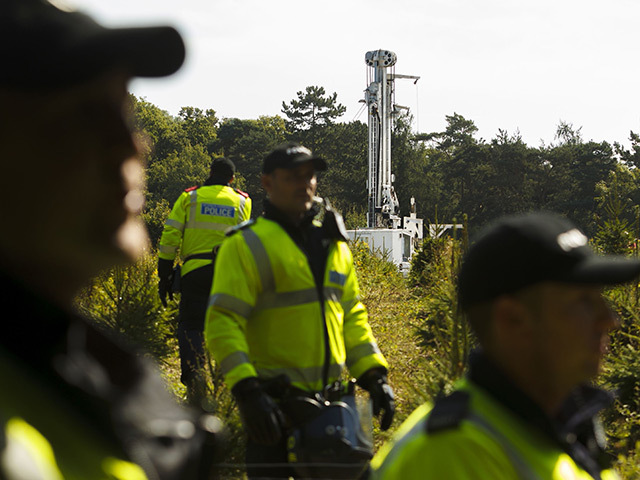
There are no scientific or technical grounds to ban fracking in Europe but it will not be a “silver bullet” to improve energy security or cut emissions, European science academies have said.
Measures such as replacing potentially harmful additives and disclosing the chemicals used in the fracking process to the authorities had greatly reduced the environmental impact of the process, the EU’s national science academies said.
And EU regulations and conventional gas extraction already provide a framework for minimising the impacts of fracking on health, safety and the environment, the European Academies’ Science Advisory Council (EASAC) said.
But in a statement it warned that while shale gas “may have significant global potential, it is no simple ’silver bullet’ to address energy security and climate change”.
The scale of shale resources and whether they can be extracted commercially in different EU states remained uncertain, the academies said.
And claims that shale exploitation can help cut emissions, which are based on using the gas to replace coal-fired power stations or for use in transport, depend on avoiding methane emissions escaping throughout drilling, extraction and after wells are closed.
The academies also said community and environmental concerns arose over raw materials, such as water, and local impacts. They said the water used in fracking should be recycled and steps taken to ensure wells are protected to prevent groundwater contamination.
Public acceptance of the controversial technology will require trust, and pilot projects need to be carried out in Europe to “demonstrate and test best practice methods and allow careful monitoring by the authorities”, the scientists said.
Peter Burri, of EASAC, said: “While there is no scientific or technical reason to ban hydraulic fracturing, there are clear rules to be followed: companies must work harder to obtain societal approval to operate, by engaging stakeholders in constructive dialogue and working towards agreed outcomes.
“Trust is critically important for public acceptance; requiring openness, a credible regulatory system and effective monitoring.
“Data on additives used and the results of monitoring to detect any water contamination or leakages of gas before, during and after shale gas operations should be submitted to the appropriate regulator and be accessible for the affected communities.”
He added: “The same openness to discuss on the basis of factual evidence must, however, also be expected from the other stakeholders.”
Hydraulic fracturing – or fracking – involves pumping water, chemicals and sand at high pressure underground to fracture shale rock and release the gas trapped in it. Wells can be drilled horizontally, leading to exploration under land around the site.
In the UK, the Government is pushing for the development of a shale gas industry, claiming it would create jobs and growth, reduce energy prices and cut the country’s reliance on gas imports.
However, opponents have raised fears that the process causes earthquakes, can pollute water supplies, lead to inappropriate development in the countryside and damage house prices.
Recommended for you
